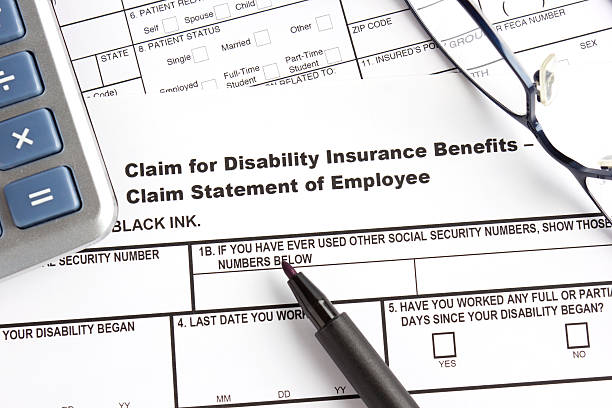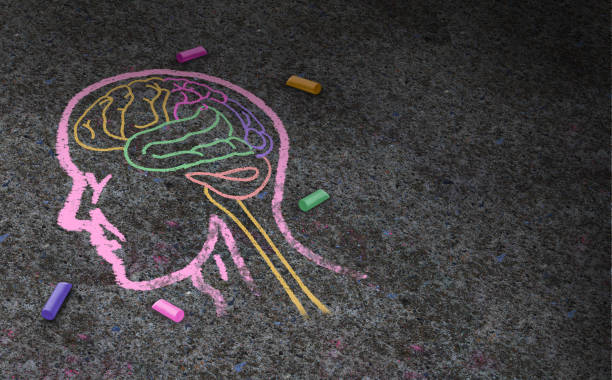Health Conditions, Insurance, Mental Well-Being
Navigating Mental Health Conditions and Disability Eligibility
Individuals seeking support and accommodation may struggle to navigate the nexus of mental health and disability. While physical disabilities are more commonly recognized, mental health disorders can have just as substantial an influence on one’s capacity to work and function in everyday life. In this article, we look at the criteria and considerations for mental health problems that qualify for disability payments. From crippling mood disorders and extreme anxiety to schizophrenia and PTSD, there is a wide range of mental health illnesses that may necessitate disability assistance. We hope to provide clarity and direction to persons navigating this difficult terrain by evaluating the criteria established by disability programs, exploring prevalent mental health diagnoses, and discussing the application procedure for disability benefits. Understanding the eligibility criteria for mental health-related disability benefits is critical for persons seeking help and accommodations in order to receive the assistance they require for their well-being and livelihood.

Eligibility Criteria for Disability Benefits
Understanding The Blue Book
The Blue Book, also known as the Disability Evaluation Under Social Security, is a guide used by the Social Security Administration (SSA) to decide whether a person is entitled to disability benefits. This book includes a list of medical ailments that qualify for disability benefits, as well as the eligibility requirements for each condition.
Qualifying Mental Health Conditions:
To be eligible for disability benefits, a person must have a medical condition that matches the SSA’s definition of disability. The following mental health problems may qualify for disability benefits:
- Schizophrenia
- Bipolar disorder.
- Major depressive disorder.
- Anxiety Disorders
- Obsessive-compulsive disorder
- Post-traumatic Stress Disorder
- Personality disorders.
To qualify for disability payments, a person’s mental health condition must be serious enough to impair their capacity to work and function in daily life. The SSA assesses the severity of the disease using the medical evidence presented.
Medical Evidence Requirements
To be eligible for disability benefits, an individual must produce medical evidence to support their claim. The medical evidence must demonstrate that the individual has a medically determinable impairment that meets the eligibility requirements for disability benefits.
Medical proof necessary for mental health problems may include, but is not limited to:
- Psychiatric Evaluations
- Mental health treatment records.
- Psychological testing
- Medical imaging
- Laboratory test results
Medical records
The medical proof must demonstrate that the individual’s mental health problem is serious enough to impair their capacity to work and function in everyday life. The SSA will examine the medical evidence to see if the individual meets the eligibility requirements for disability compensation.
Overall, individuals with mental health disorders must grasp the eligibility requirements for disability payments and present the requisite medical documentation to support their claim.

The Disability Claims Process
Individuals with emotional health disorders that limit their capacity to work may be eligible for disability compensation. However, the process of acquiring these benefits can be complicated and difficult. This section of the article will walk you through the disability claims process, from the initial application to reconsideration and appeals, as well as the role of disability lawyers.
Initial Application
The first step in applying for disability benefits is to fill out an initial application. This application can be submitted online, by phone, or in person at a local Social Security Administration (SSA) office. The application will request thorough information on the applicant’s medical problems, employment history, and other pertinent information.
Individuals seeking disability benefits must have a medical condition that matches the SSA’s definition of disability. This criterion specifies that the ailment must be severe enough to prevent the individual from engaging in significant gainful activity (SGA) for at least 12 months.
Reconsideration and Appeals
After the initial application is submitted, the SSA will analyze it and determine if the applicant is eligible for benefits. If the application is denied, the applicant may request a reconsideration of the decision.
During the reconsideration process, the applicant might present more medical evidence and other material to back up their claim for benefits. If the reconsideration is denied, the applicant may file an appeal and request a hearing before an administrative law judge.
Role of Disability Lawyers
Navigating the disability claims procedure can be difficult, so many applicants opt to work with a disability lawyer. Disability lawyers can help with the original application, reconsideration, and appeals processes.
Disability lawyers can assist applicants in gathering and presenting medical evidence to support their claim for benefits, as well as representing them in administrative law proceedings. While hiring a disability lawyer is optional, it can assist in guaranteeing that applicants have the best chance of receiving the benefits they seek.

Living with a Mental Health Disability
Individuals with mental health impairment experience daily obstacles that can impair their functional capacity and ability to carry out daily living tasks. In some situations, their handicap may impede their capacity to work and earn a living. Fortunately, there are financial and social support systems available to assist those with mental health impairments.
Daily Life Challenges
Living with a emotional health issue can provide a variety of daily life challenges. These may include trouble concentrating, managing stress, and doing daily tasks. Individuals with emotional health problems may also experience mood swings, anxiety, and depression, limiting their capacity to operate in social and professional contexts.
Individuals with emotional health disabilities may benefit from consulting with a social worker or therapist to assist them manage these challenges. These professionals can offer advice on coping strategies, stress management techniques, and other tools for managing symptoms and improving everyday functioning.
Financial and Social Support
Individuals with mental health problems may have restricted income because they are unable to work or make a living. Fortunately, financial aid programs exist to assist those with mental health issues. The Social Security Administration (SSA) provides monthly income and health insurance to persons who are unable to work due to a mental health problem.
To be eligible for these benefits, persons must have a documented mental condition that meets the SSA’s disability criteria. Disability listings specify the severity level requirements and the precise medical evidence required to substantiate a claim for benefits. Mental diseases are listed under Section 12.00 of the SSA’s disability classifications.
In addition to financial assistance, individuals with mental health problems may benefit from social support systems. These may include support groups, community organizations, and other resources aimed at assisting people with mental illnesses in managing their symptoms and improving their quality of life.
Conclusion
In conclusion, mental health conditions qualification for disability payments highlights the substantial impact these diseases can have on persons’ lives. Understanding qualifying criteria and seeking support will help you get the tools and accommodations you need, even though applying for disability benefits can be difficult. Recognition that mental health issues vary in severity and impact is vital, and those with such challenges need understanding, compassion, and appropriate care and support. We can improve inclusive and supportive environments for all by raising awareness and understanding of mental health conditions in the context of disability. This will help those with emotional health conditions get the help and recognition they need to thrive.
Trusted Health, Wellness, and Medical advice for your well-being


